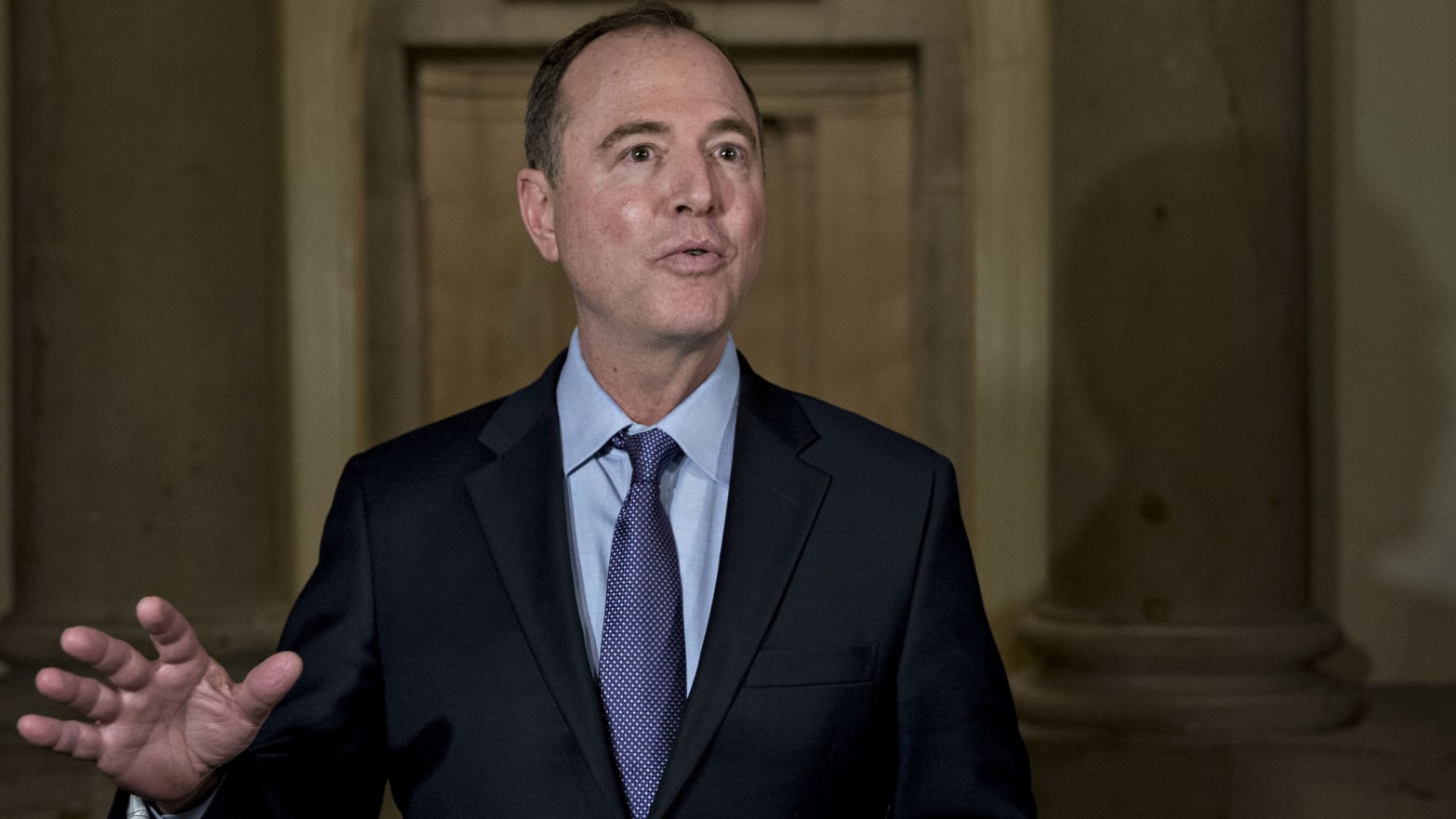The new leadership on the House intelligence committee is eager to revive the panel’s probe into the connections between Donald Trump’s camp and Russia, an urgency underscored by the latest indictment of a Trump associate accused of lying to its investigation. But three weeks into the Democratic-controlled Congress, House Republicans haven’t taken a critical step necessary for the committee to begin any work at all.
The House Republican leadership has yet to name the intelligence committee’s Republican membership for the new Congress, with the exception of retaining Devin Nunes as ranking Republican. Without doing so, the committee is stalled—no hearings, no internal business meetings. Democrats announced their membership roster on Jan. 16, adding Val Demings, Raja Krishnamoorthi, Sean Patrick Maloney, and Peter Welch to their 10 current members. (This Republican intransigence was first noted by The Rachel Maddow Show.)
It’s not clear what the holdup is. “That will be announced when it is ready,” said Matt Sparks, a spokesperson for House Minority Leader Kevin McCarthy, who did not address the reasons for the delay. A representative for Nunes—who does not pick the membership—did not respond to The Daily Beast's inquiries.
Thus far, Democrats on the panel are not accusing the House GOP of deliberately dragging its feet on the committee appointments. Some Democrats are hopeful the GOP will name its roster by next week. But, a Democratic committee aide said, “There is an urgency in getting all of our transcripts to Mueller that we cannot ignore.”
Friday’s indictment of Trump adviser Roger Stone underscored both that urgency and the stakes of the holdup. Among the offenses Mueller accuses Stone of committing are obstruction and false statements arising from his September 2017 testimony to the House intelligence committee, then under GOP management. Stone is the second such person to be indicted related to lying to the committee’s Russia probe, after ex-Trump attorney Michael Cohen.
Committee Democrats suspect others of having lied or otherwise giving them misleading testimony. One, identified by Connecticut Democrat Jim Himes, is Erik Prince, the founder of mercenary company Blackwater. (Some on the panel want several witnesses back for additional testimony, including Donald Trump Jr., while stopping short of saying those others lied as well.)
Adam Schiff, the new Democratic chairman of the committee, has said for months that an early order of business for the panel is to provide Mueller with every transcript of every witness before its Russia inquiry, which may lead to additional indictments. That hasn’t happened yet—and until the Republicans formally join the committee, it can’t. Schiff, in a Friday statement following Stone’s indictment, called the transcript provision “the first order of business” facing the panel—when it can get down to business, that is.
“We’re ready to get going,” Mike Quigley, an Illinois Democrat on the panel, told The Daily Beast. “We are hopeful those appointments will be made early next week, and as soon as they are, we will get to work.”
The Stone and Cohen indictments show that Mueller doesn’t need to have the transcripts in hand to determine if witnesses before the House committee uttered indictable falsehoods. But the transcripts are likely to aid Mueller, whom attorney general nominee William Barr said was in the terminal phase of a historic criminal probe surrounding the president.
Then there’s everything else the committee intends to do to restart its Russia investigation. Schiff is preparing the committee to look at money laundering related to Trump, and particularly at Trump’s ties to Deutsche Bank, which has a history of connections to money-laundering and which lent Trump money when other banks didn’t consider him creditworthy. Schiff is also seeking to subpoena documents and additional testimony from witnesses before the probe.
And that’s on top of everything the committee oversees: namely, the operations of the CIA, National Security Agency, and the rest of the sprawling U.S. intelligence apparatus.
All of that is in a holding pattern for now.
Democrats on the panel have spent two years seething at their GOP colleagues, formerly a majority, for obstructing the committee’s Russia investigation to protect Trump. Under Nunes, the committee declined to issue subpoenas, including for documents, communications records or other material that investigators typically require to vet witness testimony and assess its truthfulness.
Nunes turned the panel’s attention instead to scrutinizing the Justice Department and FBI officials investigating Trump, and subpoenaed them instead. Quigley, last January, pointedly questioned Nunes about whether he or his staff were still working with the White House after the California Republican was caught working with White House staff to intimate the Obama administration had improperly surveilled Trump associates. “As far as I know, no,” Nunes replied at a Jan. 30, 2018 hearing.
—with additional reporting by Jackie Kucinich

